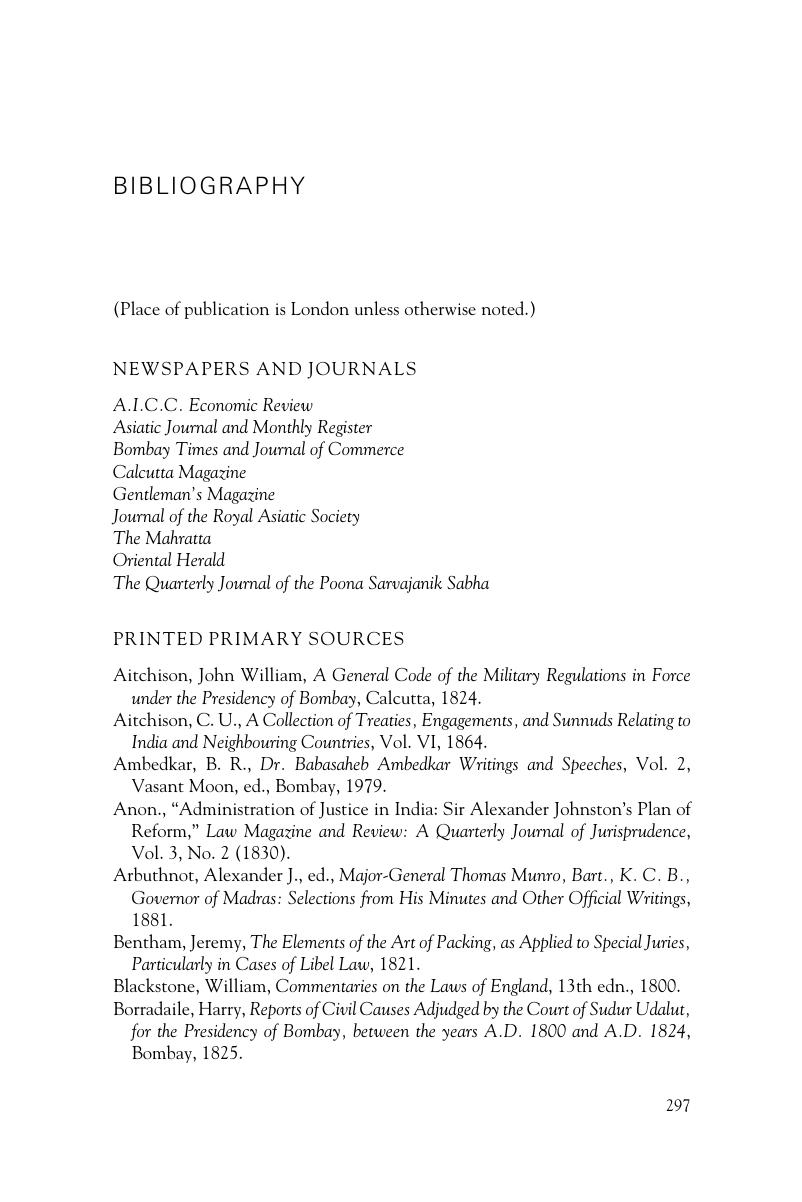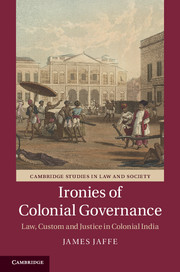Book contents
- Half title page
- Cambridge Studies in Law and Society
- Title page
- Copyright page
- Dedication
- Contents
- Contents
- Book part
- Glossary
- Additional material
- Introduction
- Part I Discoveries and adaptations
- Part II Lineages and legacies
- Conclusion
- Glossary
- Manuscript Sources
- Bibliography
- Index
- Books in the Series
- References
Bibliography
Published online by Cambridge University Press: 05 May 2015
- Half title page
- Cambridge Studies in Law and Society
- Title page
- Copyright page
- Dedication
- Contents
- Contents
- Book part
- Glossary
- Additional material
- Introduction
- Part I Discoveries and adaptations
- Part II Lineages and legacies
- Conclusion
- Glossary
- Manuscript Sources
- Bibliography
- Index
- Books in the Series
- References
Summary

- Type
- Chapter
- Information
- Ironies of Colonial GovernanceLaw, Custom and Justice in Colonial India, pp. 297 - 307Publisher: Cambridge University PressPrint publication year: 2015



